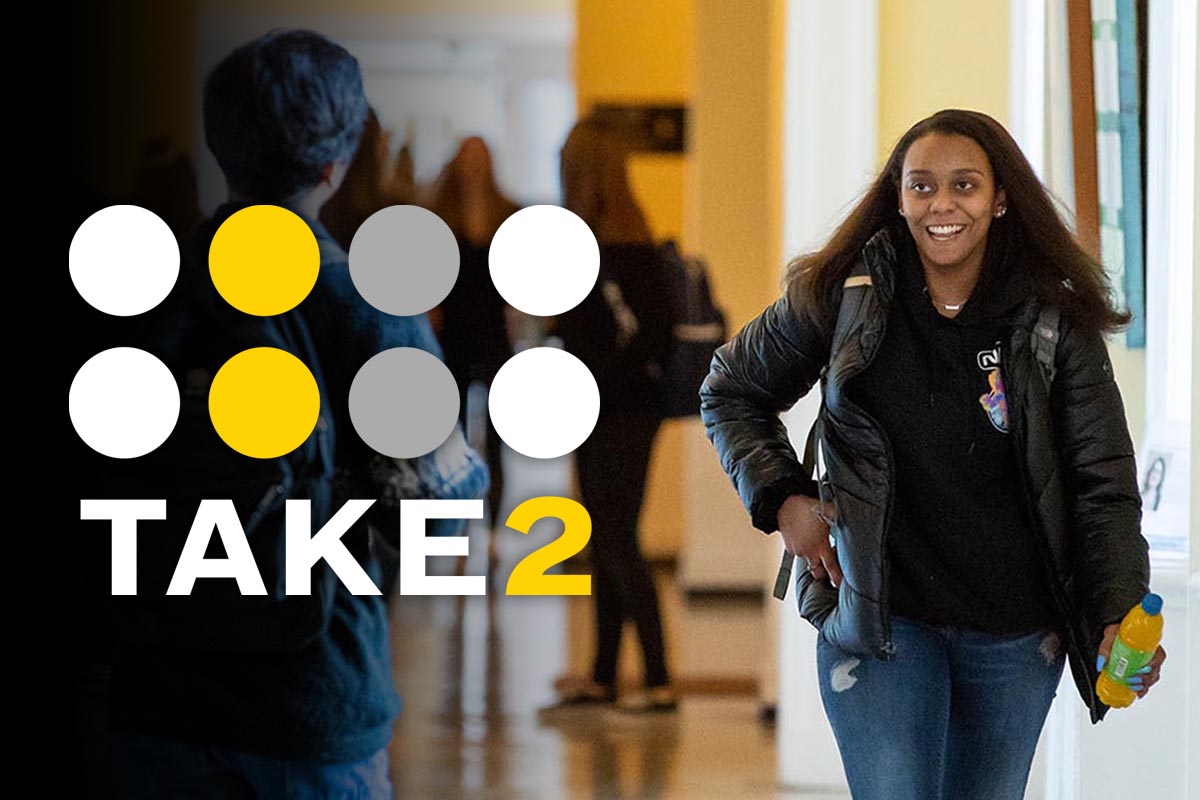Randolph's SUPER, STAR programs work to create connections during online learning

Professor Sarah Sojka teaches a class during the Step Up to the Physical Sciences and Engineering at Randolph (SUPER) program in 2018.
Randolph’s SUPER and STAR programs are both dedicated to helping first-year students adjust to college life. In 2020, that task became even more difficult, creating a sense of community with students who couldn’t be together in person.
“For both STAR and SUPER, that personal component, being able to see them face-to-face, is really important for building a cohort and making sure your students are on track. It’s also important for helping them make connections with other students,” said Kimberly Sheldon, director of student success.
Summer Transition at Randolph (STAR) is a free program open to first-year, first-time students of all academic interests, while Step Up to the Physical Sciences and Engineering at Randolph (SUPER) is a scholarship program for students specializing in the sciences. Both find students participating in classroom activities and social events designed to help them thrive in classes, familiarize themselves with campus, and develop friendships with classmates.
Peter Sheldon, director of SUPER, said the idea of doing those things for students in a virtual environment was daunting. But they found ways to adapt, sending care packages to students in both programs. For SUPER, that meant mailing lab kits and other items—which were labeled with instructions to open on specific days—to 24 students, some as far away as India and Ethiopia.
“In the end, it was just giving these students an opportunity to be equal partners in what we’re trying to do here,” he said.
The packages also included books and school supplies, Randolph swag, and party games.
“The last package we received after the program ended was a snack box—the best thing ever,” said Kai Miller ’24, who was one of 23 students enrolled in the STAR program. “The care packages were super sweet and helpful, especially since not everyone was able to go get supplies. They were also quick with shipping and making sure you got everything you needed.”
The programs are rigorous in person, and were no less so virtually, with classes and activities condensed into one week instead of two. Both required students to spend large portions of their day online for classes and meetings with professors and tutors. SUPER students would eat their lunches together on Zoom most days and have afternoon labs with Peter Sheldon.
Miller said the experience helped prepare them for taking classes online this fall, offering a head start on how to turn in assignments, use the course management system Moodle, and email professors.
“My time in the program was absolutely amazing,” Miller said. “I met so many wonderful people, and the material was engaging. It’s helped me a lot this first semester and, if I’m being honest, if I hadn’t taken it, I could really see myself struggling.”
It taught students something else, Miller added: “That while we were online, we could still have a good time together.”
Elana West-Smith ’24, who was also enrolled in STAR, said the bonds formed during that intense week have remained.
“I loved the tasks we were required to do, and I was able to meet a group of people that I am still connected to now,” she said. “As a first-generation student, this program encouraged me that I was on the right track.”
Both programs also hosted social events in the evenings. There were games with Davenport Leaders, a movie night complete with popcorn and candy from the care packages, and other evenings when students could just show up and chat.
The evening gatherings created challenges for the students completing the SUPER program from overseas, more than nine hours ahead of their classmates.
“The student in India joined me nearly every evening,” Peter Sheldon said. “He would get up in the middle of the night or get up early in the morning.”
Some events were optional, taking into account the rigors of the online learning environment.
“I tried not to do too much required social programming because I knew they’d been online all day,” Kim Sheldon said. “You had to find a balance between the online fatigue one can experience when you’re doing this all day long like we were, with still having fun.
“I’ve been pleased and proud of them, sticking in there with a really intense program in an online environment,” she added. “I told them that if they could do the week well, and they did, they could do those first few weeks of college.”
Tags: engineering, fall 2020, first year programs, online learning, remote learning, science, STAR program, STEM, SUPER, virtual classroom, virtual learning
